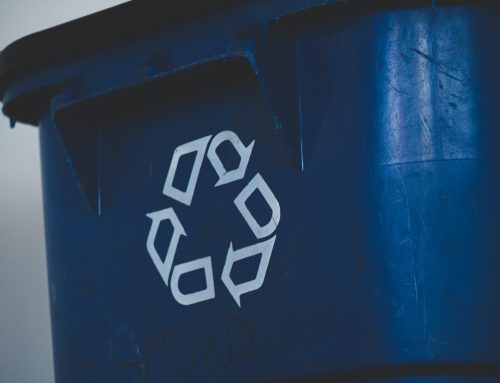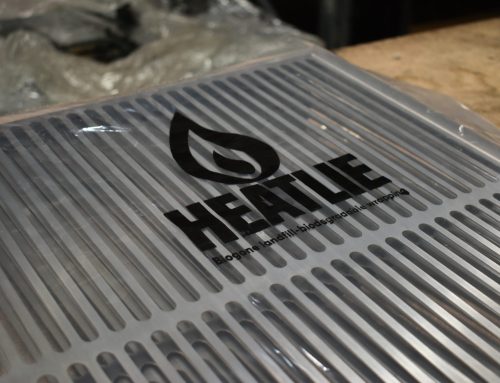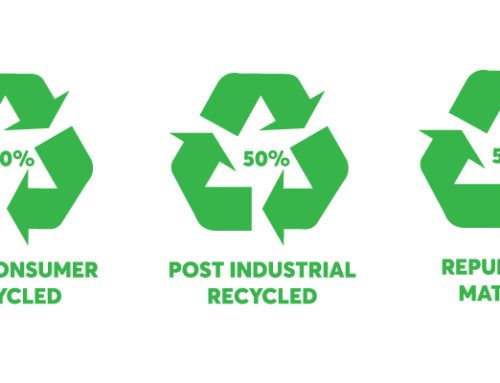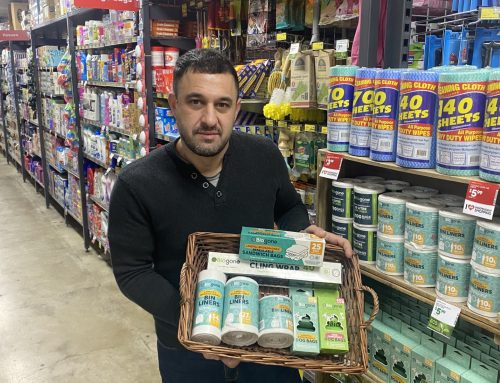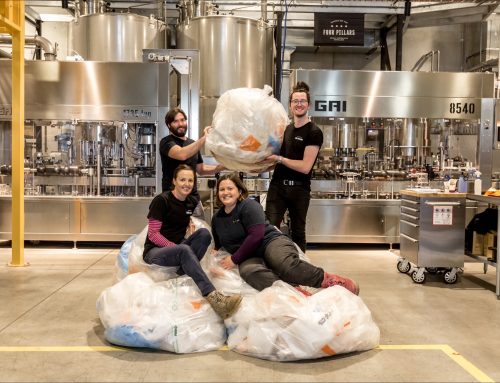The United Nations Environment Assembly (UNEA) has planned a Plastic Pollution Treaty – the first international legally binding treaty since the Paris Agreement to battle plastic pollution amidst the growing global plastic pollution crisis. This global plastic pollution treaty is seen as the most important step in the journey to prevent marine plastic pollution and the overall impact on animals and the environment.
Nations are hoping to reduce the amount of plastic pollution by establishing goals and procedures to reduce plastic production and to help with managing waste. Through this, the UNEA is hoping the treaty will help nations minimise their plastic waste and help protect the planet.
The Plastic Pollution Treaty also addresses the full lifecycle of plastic, from production to disposal, and if nations don’t make an active effort to abide by the treaty, environmental ministers have predicted that there will be more plastic in the ocean than marine life by 2050.

Photo: Hermes Rivera
Where is plastic pollution coming from?
Plastic pollution is one of the most pressing environmental issues of our time. It is estimated that there are currently over 5 trillion pieces of plastic littering our planet, and that number is increasing everyday. The accumulation of plastic waste can have serious consequences for human health and the environment.
Plastic pollution comes from a variety of sources, but the two biggest culprits are single-use plastic products and plastic packaging. Single-use plastic items like straws, plastic bags, and water bottles are used for just a few minutes but can take hundreds of years to break down. Plastic packaging, such as the kind used for food and beverages often ends up in landfill or as litter, which is why the global treaty is essential in helping nations combat the growing problem of plastic waste.
Causes of plastic pollution
The proliferation of single-use plastic products
Single-use plastic products are a major contributor to plastic pollution. Single-use plastic items, such as straws, water bottles, and grocery bags, are used for a brief period of time before being discarded. These items often end up in the environment causing pollution.
The improper disposal of plastic waste
When plastic waste is not properly disposed of and recycled where possible, it can end up in the environment, polluting the air, water, and soil.
The production of plastic products from fossil fuels
The production of plastic products from fossil fuels is a major source of plastic pollution. Plastic is made from petroleum, a fossil fuel. The production of plastic releases greenhouse gases into the atmosphere, contributing to climate change.
Effects of plastic pollution
The oceans are a major source of plastic pollution. Every year, plastic waste ends up in the ocean where it harms marine life. Animals can become entangled in plastic or mistake it for food. This can lead to choking or being poisoned.
The effects of plastic pollution in oceans and on animals are devastating. Turtles, for example, often mistake plastic for food and eat it. This can cause them to choke or starve to death.
Plastic pollution is also having a major impact on the environment. Plastic waste can take centuries to break down, and when it does, it releases harmful toxins into the soil and water. This can contaminate food and water supplies, and damage ecosystems, which impacts all living things, including humans, animals and plants.
What is the Australian Government doing about plastic pollution?
The Australian Government aims to increase awareness of plastic waste management as well as have procedures in place to minimise the impact of plastic pollution in our environment, so that the treaty can be abided by in our country.
The Australian Government’s investment of $16 million between 2019 to 2025 aims to help decrease plastic pollution in the ocean.
The Australasian Recycling Label (ARL) has also been a tool that the government has invested in to help educate the general public on how to dispose of waste. Through this, the Australian Government is planning to work with industries as well as consumers to make sure that ARL is implemented throughout at least 80% of supermarket products by December 2023.
How can we stop plastic pollution?
- Reducing our use of plastic products by refusing plastic straws, plastic bags and plastic water bottles. Bring your own reusable shopping bags and water bottles when you go out, and say no to single use plastic packaging whenever possible
- Recycle the plastic that we do use and make sure to properly recycle plastic containers, and avoid throwing plastic away in general. If you must use plastic, try to find plastic products that are landfill biodegradable or home compostable
- We can help clean up plastic pollution and join a local beach cleanup event, or participate in World Cleanup Day to make a difference – every small effort counts in helping achieve the targets set out in the plastic pollution treaty.
We can all do our part to reduce plastic pollution by recycling, refusing plastic straws and bags, and buying products made from sustainable materials.
Let’s work together to protect our planet from the damaging effects of plastic pollution so that the global treaty to regulate plastic pollution gains momentum.

